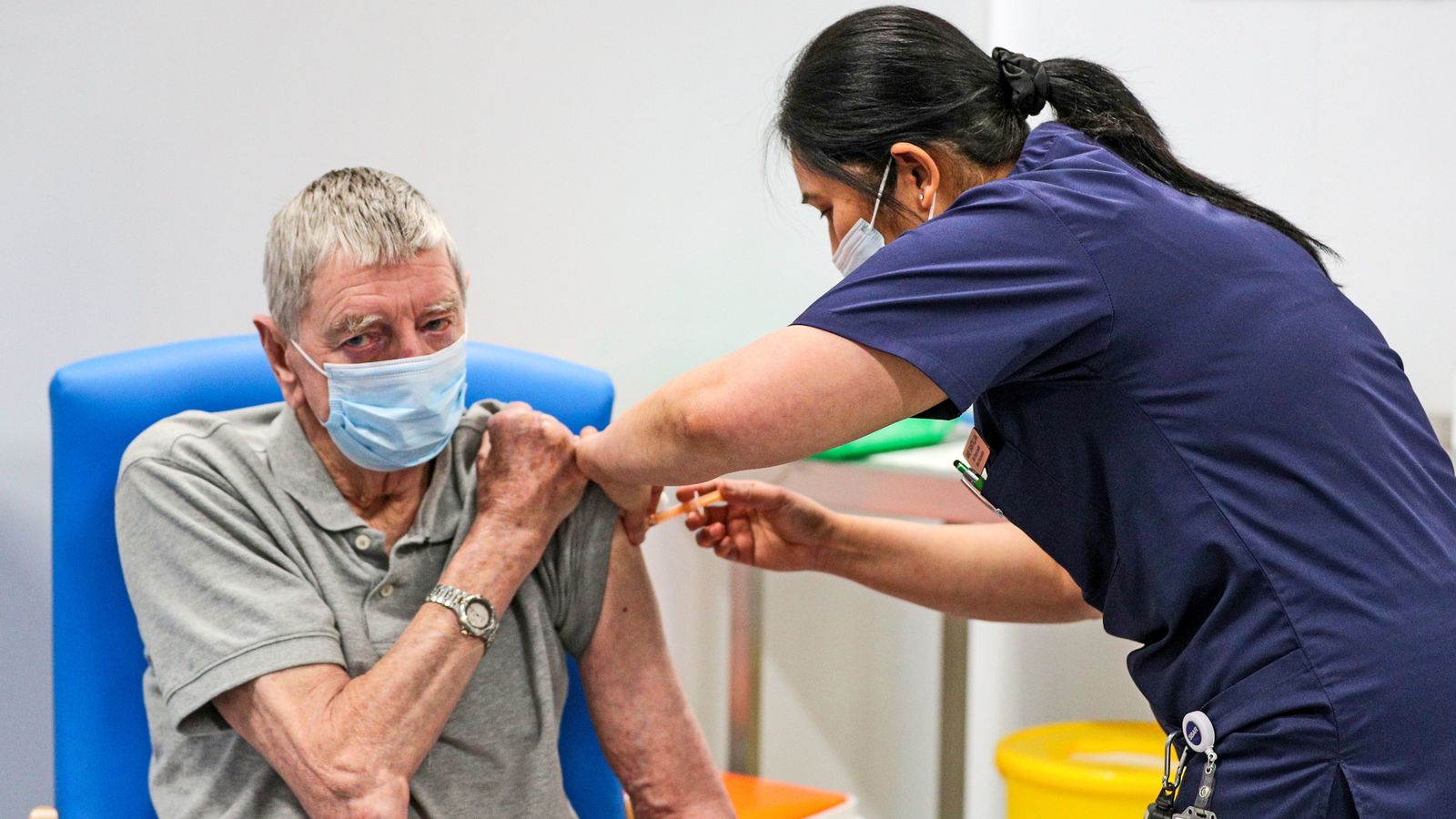New research shows vaccines, and not lockdowns, are the key to controlling the coronavirus pandemic – but they only reduce “silent infections” by 57%.
These are infections without symptoms, which mean even vaccinated people can spread the virus without knowing it.
So what does this mean for the wider picture?
These new results add to the real-world evidence that the vaccines work.
But significantly they don’t provide complete protection against COVID.
Even after just one dose, the vaccines reduced symptomatic infections by 74%. They’re the ones that can cause serious disease and death.
Live COVID updates from UK and around world
But they only reduce silent infections – those without symptoms – by 57%. In other words, even after having a dose of the vaccine there is still a very high chance that people can be infected without knowing it – and spread it.
The protection after the second dose of the Pfizer jab is much higher at 90%. Analysis on the AstraZeneca vaccine is still being done.
In a separate study, researchers looked at the antibody levels following vaccination. Worryingly about 5% of people had a low immune response, which could leave them vulnerable to infection.
So will the vaccines stop a third wave?
Probably not without some other public health controls to reduce transmission.
So far, more than 33 million people have had at least one dose of a vaccine in the UK, while 11 million have had two jabs.
Please use Chrome browser for a more accessible video player
But there are around 14 million people under the age of 18 in the UK and they aren’t currently due to have the vaccine.
Add the 5% of adults who have so far not taken up an offer of vaccination – as well as the infections that slip through from an imperfect vaccine – and that’s a large pool of people who could harbour the virus.
Subscribe to the Daily podcast on Apple Podcasts, Google Podcasts, Spotify, Spreaker
But while cases may rise, serious infections should be held back by the jab. Hospitals are unlikely to come under the same pressure as they did earlier this year.
All that assumes we keep variants under control. The vaccines aren’t as effective against the South African and Manaus viruses, and there’s concern too over the new Indian double mutant.
If they start to spread widely in the UK, the epidemic could surge for several months while new vaccines are made and rolled out.






















